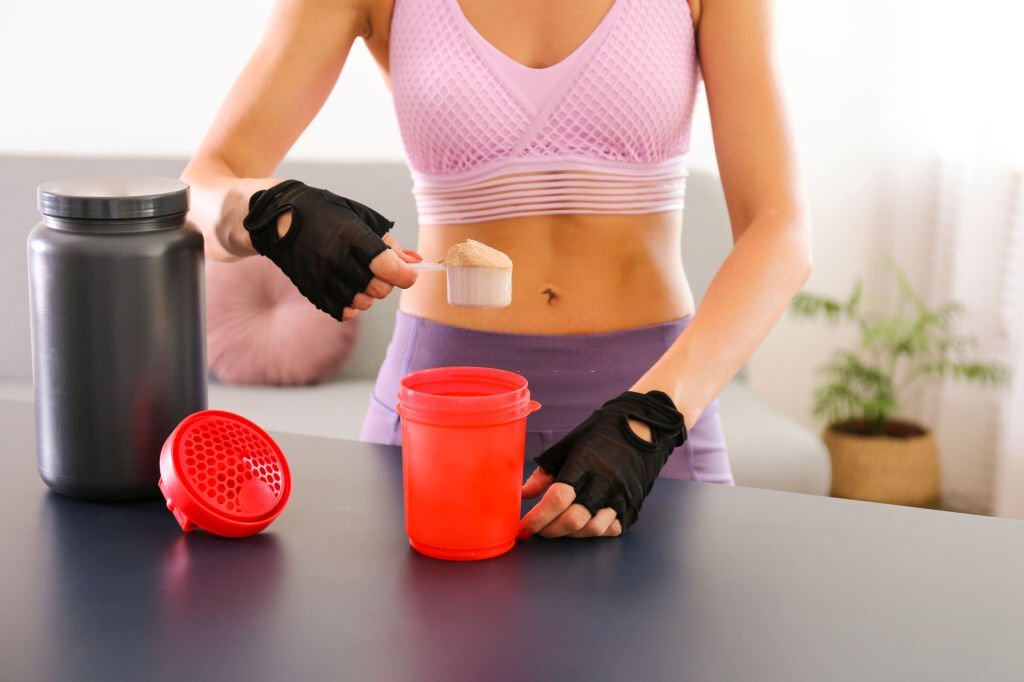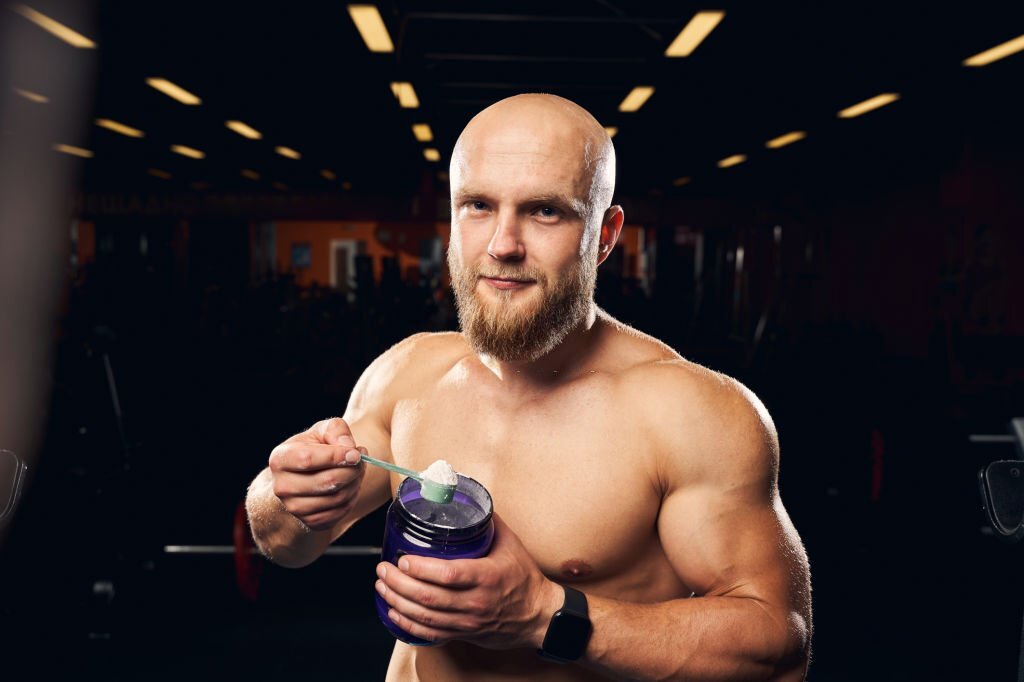When you engage in athletic pursuits, bodybuilding, or have a passion for fitness, your one go-to supplement is creatine. But amidst the promises of increased power, a lingering doubt may leave you puzzled: does creatine make you tired?
Well, creatine is unlikely to cause tiredness; instead, studies suggest that creatine improves energy levels and physical performance by increasing the amount of ATP in muscle cells. But some may experience fatigue due to dehydration from too much creatine intake or insufficient hydration.
Let’s delve deeper into why some feel tired after consuming creatine and explore ways to prevent or alleviate this fatigue.
Why Does Creatine Make You Tired: 7 Possible Reasons
While creatine generally doesn’t cause tiredness, there are some reasons why certain people may experience fatigue after consuming creatine. Here are a few possible causes.
Dehydration
Creatine tends to draw water into the muscles, which can lead to increased fluid requirements. So, if you don’t drink enough water while taking creatine, dehydration can occur. Consequently, it may lead to experience fatigue and a lack of energy.
Overtraining
Creatine can increase your strength and endurance, which may lead you to train harder than you’re used to. It can result in overtraining, which can cause fatigue.
Digestive Issues
Creatine supplementation may cause gastrointestinal distress in some, such as bloating, diarrhea, or cramping. These digestive issues can be uncomfortable and may contribute to feelings of tiredness or lethargy.
Sleep And Sleep-Wake Behavior
Creatine supplementation may affect sleep-wake behavior and reduce homeostatic sleep pressure. It does not explicitly state that these effects would make you tired. It may vary.
Learn more about the effect of creatine on sleep.
Dietary Factors
Creatine is most effective when combined with a diet high in carbohydrates and protein. If your diet lacks these nutrients, you may not experience the full benefits of creatine and may feel fatigued.
Check what to mix with creatine for optimum results.
Pre-Existing Conditions
Some medical conditions like kidney disease, high blood pressure, liver disease, and certain medications like diuretics and cimetidine can interact with creatine supplementation, potentially leading to tiredness. So, consult a healthcare professional before starting any new supplement regimen, especially if pre-existing health conditions exist.
Creatine Non-Responders
Some people might not respond to creatine supplementation as expected. Instead of gaining energy and power, they might feel more tired. The reasons behind this aren’t entirely understood, but genetic factors could play a role.

How To Take Creatine Without Having Tiredness?
Here’s how you can take creatine to improve energy levels and minimize fatigue potentially:
Consult With A Healthcare Professional
Before starting any new supplement, including creatine, it’s always a good idea to consult a healthcare professional or a registered dietitian. They can provide personalized advice based on your health status, goals, and potential interactions with medications or medical conditions.
Choose The Right Creatine Form.
Creatine is available in various forms. The most extensively researched and commonly used form is creatine monohydrate, recommended for most individuals.
Maintain A Maintenance Phase
The typical maintenance dose is 3-5 grams of creatine per day. Splitting this dose into multiple servings daily is best for better absorption.
Some begin creatine supplementation with a loading phase to quickly saturate the muscles with creatine. During this phase, you can take around 20-25 grams of creatine daily for 5-7 days.
Timing And Consistency
While there isn’t a consensus on the ideal timing, taking creatine consistently at the same time each day is good. Some prefer taking it before or after workouts, while others split the dose throughout the day. Find a schedule that works for you and stick to it. You can also take creatine at night.
Explore more on the proper time to take creatine.
Stay Hydrated
Aim to consume adequate amounts of water throughout the day, especially when supplementing with creatine.
Balanced nutrition
Eat a balanced diet with nutrient-dense foods like fruits, veggies, lean proteins, whole grains, and healthy fats for optimal energy levels.
Scientific evidence shows that consuming creatine with carbohydrates can enhance muscle uptake. So, combine your creatine intake with a snack or meal containing many carbohydrates. You can also add creatine to your juice or morning oats.
Regular Exercise
Regular physical activity is crucial for maintaining overall energy levels and reducing tiredness. Incorporate cardiovascular exercises, strength training, and flexibility exercises into your routine. Regular exercise helps improve circulation, boosts metabolism, and enhances stamina and endurance.
Adequate Rest
Aim for 7-8 hours of quality sleep per night to allow your body to repair and rejuvenate. Establishing a consistent sleep schedule and a relaxing bedtime routine can help improve sleep quality.
Manage Stress
Manage stress with meditation, deep breathing, yoga, or favorite activities. Boost energy and well-being with healthy techniques.
Monitor your response
Monitor how your body responds to creatine supplementation. Watch for changes in energy, strength, and muscle recovery. Consult a healthcare professional if you have concerns or experience negative side effects.
FAQs
Does creatine make you feel weird?
In general, creatine does not cause significant “weird” or unusual feelings. However, some individuals may experience mild side effects like gastrointestinal discomfort or bloating. If you have concerns about how creatine may affect you personally, it’s best to consult a healthcare professional.
Does creatine make you gain weight?
Well, creatine can cause temporary weight gain due to water retention in the muscles, but it does not directly promote long-term fat gain or muscle growth.
Does creatine make you bald?
There is no scientific evidence linking creatine supplementation to hair loss or baldness. Hair loss is primarily influenced by genetics and hormonal factors, while creatine is a popular and safe supplement used for athletic performance and muscle development.

Final Words
Wondering, “Does creatine make you tired?”
Tiredness is a rare side effect that you may encounter after taking creatine. However, several factors can cause tiredness while on creatine supplements, like dehydration, over-exercise, medication interaction, etc.
So, always consult a healthcare professional before starting creatine or other supplements.
For more on safe supplementation, visit our blogs.

I started my professional career as a sports medicine consultant in Rola, Missouri. My primary role was to suggest suitable supplements for my patients according to their pre-existing conditions and lifestyle goals. I believe a healthy lifestyle is the most important if you want to make your life really meaningfull.

